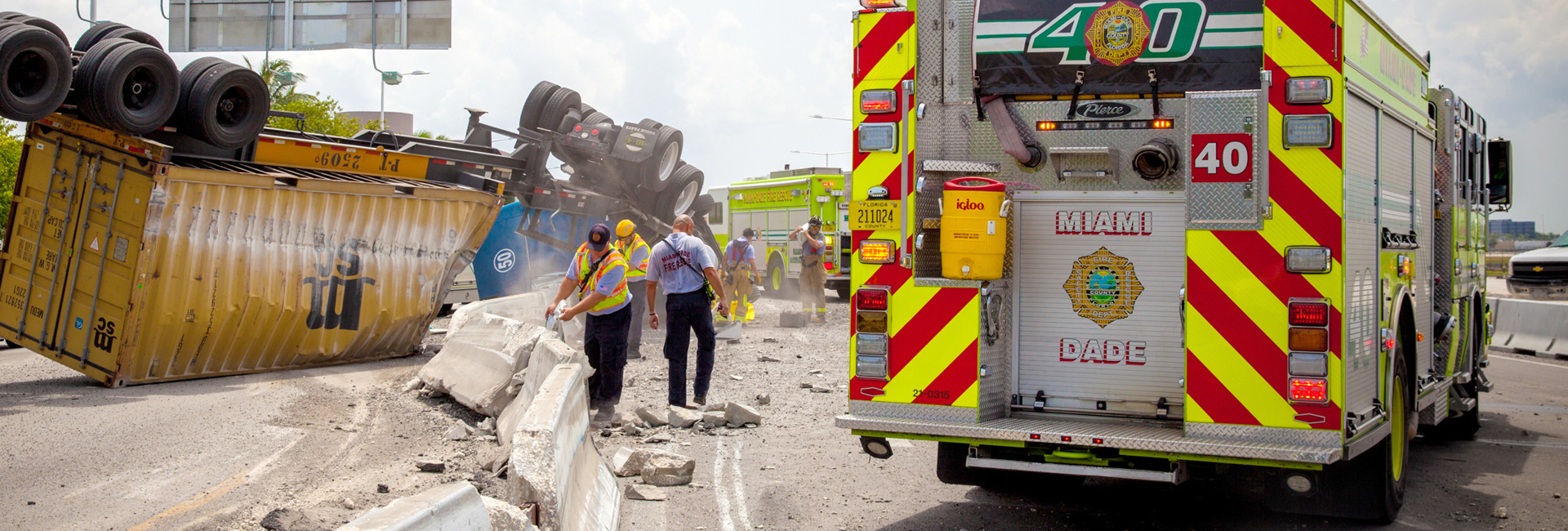Safety Tips: Electrical Hazards
Even though improved safety engineering on electrical products and strict enforcement of electrical codes have reduced electrical hazards, thousands of people are seriously injured or killed by electrical shocks and fires every year.
According to the U.S. Consumer Product Safety Commission, there are over 400 electrocution deaths in the United States each year. Electrocutions from wiring hazards, including damaged or exposed wiring, account for approximately 20 percent.
Electricity also causes an estimated 140,000 fires each year. These fires kill hundreds of people, injuring thousands more, and cost billions of dollars in property damage. Aging electrical systems, combined with growing power demands, contribute to most electrical fire hazards.
Most electrical emergencies can be avoided with an increased awareness of electrical safety and periodic inspections of home electrical systems. Here are some guidelines for electrical safety:
- Avoid overloading outlets with too many appliances. There’s a good reason why most outlets only have two receptacles. The wires behind those outlets can only handle a certain amount of current. Overloading them can be very dangerous.
- Extension cords are not intended as permanent household wiring. They should only be used on a temporary basis. They should never be nailed or stapled to the wall, baseboard or to another object. Never rest any furniture on cords or run them under carpets or rugs.
- Never remove the ground pin (the third prong) to make a three-prong fit a two-conductor outlet, and never force a plug into an outlet if it doesn’t fit. Plugs should fit easily and securely into outlets.
- Check for outlets that have loose-fitting plugs, which can overheat and lead to a fire. Replace any missing or broken wall plates. Make sure there are safety covers on all unused outlets that are accessible to small children.
- Ground Fault Circuit Interrupters (GFCIs) should be used in any area where water and electricity may meet. A GFCI outlet should replace a standard type outlet in areas like kitchens and bathrooms. When a GFCI senses a problem in an electrical circuit, it interrupts power fast enough to help prevent serious injury from electrical shock.
- Water and electricity don't mix! Don't leave plugged-in appliances where they might fall in contact with water. If a plugged-in appliance falls into water, NEVER reach in to pull it out—even if it's turned off. First turn off the power at the main electrical panel and then unplug the appliance.
- Outdoors: Electric tools should not be used in the rain, on wet grass or in wet conditions. Always use an extension cord marked for outdoor use and rated for the power needs of your tools. When using ladders, watch out for overhead wires and power lines. Stay at least 10 feet from all lines.
- Unless you are qualified and experienced in electrical work, you should always hire a licensed electrician for electrical repairs, maintenance, and installations. If you consider yourself qualified and experienced to perform such work on your own, make sure you follow these safety basics:
- Never work on or around “hot” lines. Always de-energize lines and equipment by disconnecting the power at the circuit breakers or fuses. Don't forget to test every conductor before you make contact with it.
- When using wire connectors, be sure the insulation on the wires is completely covered by the wire connector.
- Never use the ground wire as the neutral or circuit-carrying conductor. The ground wire is not designed to carry current continuously, but briefly under an abnormal condition. If you’re not sure which one is which, you definitely should not be doing the work. Hire a professional.
- Owners of older homes could have a major hazard lurking behind the walls. If your home is more than 40 years old, and the wiring has never been updated, you should have it inspected by a licensed electrician. Your home might even be telling you that it needs a check-up with signs like loose receptacles, tripping circuit breakers or popping fuses, and dim or flickering lights.
- Homes that have been recently renovated or have added major new appliances should also have the electrical system checked.
- No matter how old your home, you should always have detailed knowledge of the condition of its electrical system, including its capacity, limitations, and potential hazards. An electrical inspector or a licensed electrician can inspect your home’s electrical system to ensure the wires are in good condition and the electrical service can adequately supply the demand.

Fire Rescue
Raied "Ray" Jadallah
R. David Paulison Fire Rescue Headquarters
9300 NW 41st Street,
Miami, FL 33178-2414
786-331-5000

